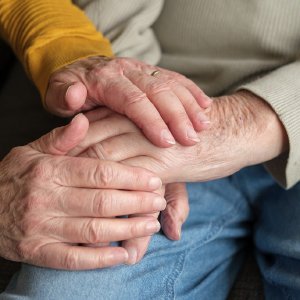Opinion: Democracy does not live or die at the end of a rifle
| Published: 10-10-2023 4:00 PM |
John Buttrick writes from his Vermont Rocker in his Concord home: Minds Crossing. He can be reached at johndbuttrick@gmail.com.
“Democracies don’t have to die at the end of a rifle,” President Biden recently said. “They can die when people are silent, when they fail to stand up or condemn threats to democracy.”
As I listened I pondered, what is it that makes a democratic form of government so vulnerable? After all, the United States has maintained a semblance of democracy for over two hundred years. Conversations about the threats of the January 6 invasion of the Capitol, the solidified divide among the citizenry and within the government, and the accusations of corruption, lies, and the turmoil prevalent in the current election cycle seem to have little to do with the ideals of democracy. They leave us bereft of reasons to stand up for such a democracy.
The problem is our country exhibits a flawed representation of the workings of a democracy. It is difficult to discover the elements of a democracy in the functioning of the United States government when it includes power grasping, minorities seen as losers, and political campaigns where an accumulation of the most money earns the most votes. These are not the marks of the democracy that inspires the American people or that the United States seeks to spread around the world. They are the marks of a pseudo-democracy that is corrupted by competition for dominant power, economic oppression, and hegemony.
A truly democratic system of government is a form of government in which supreme power is vested in the people. The functioning of this system may take a number of different forms, in contrast with the prevailing fabricated democracy. For example, The Swedish Research Institute identifies several different democratic systems: Consensus democracy – rule based on consensus rather than traditional majority rule; Constitutional democracy – governed by a constitution; and Deliberative democracy – in which authentic deliberation, not only voting, is central to legitimate decision making.
The United States was formed as a representative democracy, guided by a constitution, where citizens vote for representatives who are trusted to conduct authentic deliberations in preparation for voting-informed decisions.
However, this process has broken down as citizens have lost the perception that they have an effective influence upon the workings of the government. Evidence in this loss of trust can be found in the debates over voting districts, voting registration, and the access to voting influence by minority groups. Another factor is the failure of Congress to be guided by authentic deliberations on the issues that affect the lives of the citizens. Instead, decisions are made by accumulating power and influence. This demonstrates a lack of faith in the democratic system by elected officials. Instead, they have become dependent upon opinion polls, majority power over the weak, and accumulation of money.
Perhaps it’s time to seek the guidance of the International Conference of fists, Bangkok, 1965. The Conference reported that a democratic country must have at least five characteristics: “supremacy of law (Law above all things); equality before the law; constitutional guarantee of human rights; an impartial tribunal (a court system); and civic education.”
Article continues after...
Yesterday's Most Read Articles
Civic education may be the primary motivator for the revival of these characteristics in our country. A true democracy will embed these characteristics into the bones of its citizenry. Every person running for an office must be selected for their commitment to these ideals. Raising campaign money and building a power base must be abandoned as an indicator of an acceptable candidate.
Deliberative democracy gives influence to every citizen. It requires an understanding of the process of listening, advocating and building community. It protects minority voices from being overpowered. It frees people from a sense of inferiority, anger, and powerlessness that drives people to bluster, deception, and violence. And it gives voice to every citizen to make the case for their understanding of a fair and just community for all people. It’s a way to stand up for democracy.







 Opinion: Courage and care count
Opinion: Courage and care count
